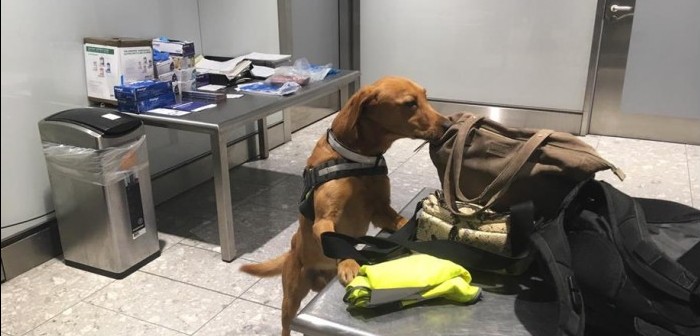Charlie Dewhirst, the NPA’s chief policy adviser, explains in the latest issue of Pig World how the NPA continues to push Government to strengthen the UK’s protections against African swine fever
 As Lizzie mentioned in last month’s article, the battle to get border checks implemented on good moving from the EU into mainland GB received a further set back when they were delayed for a fifth time.
As Lizzie mentioned in last month’s article, the battle to get border checks implemented on good moving from the EU into mainland GB received a further set back when they were delayed for a fifth time.
Following this, we have reinvigorated our campaign to raise awareness with Parliamentarians of the ever-increasing threat of ASF without effective border controls in place.
Of particular concern in the Government’s own publication about the new border controls (or Border Target Operating Model as it is officially known) is a case study on ASF itself. It opens with a line that everyone in the industry knows all too well: “An outbreak of African Swine Fever would be a fundamental threat to the viability of our pig industry.”
It then goes into detail that had not previously been in the public domain: “Recent routine inspection of retail shops by local authorities in the UK detected frozen, raw and uncooked meat products marked clearly as suitable only for sale in the originating EU country. Further investigations found these products had been purchased by two importers, linked to over 280 retail outlets in the UK. These products were exported commercially, and properly pre-notified on the UK imports system.”
The conclusion to the case study offers a chilling appraisal of the danger that faces the industry: “Although the products didn’t test positive for African Swine Fever on this occasion the very fact that these products reached the UK presents a serious and immediate threat to the UK pig industry. These goods would not have made it to the UK if Sanitary and Phytosanitary (SPS) controls had been in place because they would not have been certified for export by a veterinarian in the originating country.”
The final sentence says it all. Implementing SPS checks would reduce the threat of ASF, but the Government has delayed them again because they are under pressure from supermarkets who say it will make food more expensive. What would happen to prices if there was an ASF outbreak in the UK and entire food supply chains had to be shut down while we eradicate it?
It is worth pointing out that Defra is very sympathetic to the industry’s concerns but decisions on border controls lie with the Cabinet Office, who wield significantly more power in Whitehall.
Restrictions on non-commercial imports of pork were increased in September last year, limited to 2kg, and a new campaign to raise awareness of ASF has been more visible at ports and airports. While the 2kg limit is welcome, it would be even better to follow the EU’s example and ban any non-commercial pork imports. It would certainly send the right message to tourists arriving in the UK.
However, 99.9% of pork coming into the UK is through commercial routes and these remain unchecked. The Government’s own case study clearly demonstrates that there are rogue operators using these channels to bring illegal meat into the country that could very easily have originated in one of Europe’s ASF hotspots.
Four NPA asks
With all this mind, the NPA has set out four key asks from the Government in our recent meetings and briefings with Minsters, MPs, Peers and officials. They are:
- No further delays beyond 30 April 2024 on SPS checks for goods entering the UK from the EU.
- A review of APHA resource and available expertise to ensure it has the capability to respond quickly and effectively to notifiable disease outbreaks, particularly as the on-going Avian Influenza prevalence means that we could very conceivably see concurrent outbreaks of two different notifiable diseases.
- We urgently need to agree a plan for regionalisation with our trading partners to ensure that unaffected parts of the UK could still export pork in the event of an outbreak.
- Improved and increased border controls for meat imports (sniffer dogs etc at ports/airports/Eurotunnel and postal hubs). We also need better communications, including messaging at points of entry, to emphasise the risks of bringing in meat products.
We have another six months until the SPS controls are introduced, and we will remain needlessly vulnerable during that time. However, even if we get to April 30 next year and we are still free of ASF, the risk will not have gone away.
Until the day comes that ASF is no longer a threat, we must keep pushing the Government to increase its vigilance, strengthen its border controls and educate people of the dangers of bringing pork into the UK.




